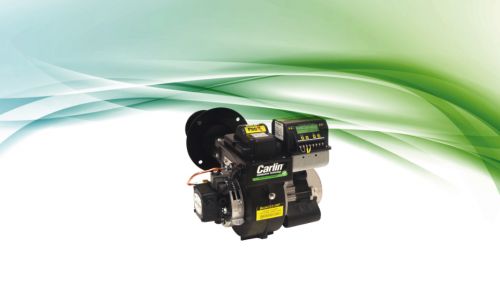All
Top Tips for Today’s Techs
by Samuel Diamond

This spring, like every year, HVAC technicians have a range of training opportunities before them. The Eastern Energy Expo alone offers over 30 sessions in its technical track, and with thousands of professionals in attendance, there’s a decent chance that you, our reader, have turned to this page while waiting for one of those very sessions to begin. Whether a recent hire learning the ropes or a seasoned service manager renewing NORA certification, you’re here for essentially the same purpose — to expand your knowledge base and skill set.
With this in mind, we reached out to Oil & Energy Service Professionals (OESP) Education Co-Chair Mike Hodge for training tips and other insights that may prove useful for today’s HVAC service techs. Hodge, who has more than 45 years of technical expertise and a wealth of service manager experience under his belt, currently works as Mid-Atlantic service director for Maryland-based Griffith Energy Services, Inc. and is leading a session called “Motivating Your Technicians to Sell” at this year’s Expo (Monday, May 21 at 2:15 p.m. in the Monterey Room).
Here, however, Hodge goes beyond sales pointers to provide an overview of industry best practices and vital tools of the trade.
- “Know the Approach”
Knowing how to right-size a boiler is one thing, but truth be told, the technician’s job starts with functions that are anything but technical. According to Hodge, technicians must first and always be mindful of “how they approach customers.” That applies even when techs pull their service vans up to a customer’s house, he says. “Where do they park? How fast do they get out? How do they knock on the door and greet the customer?” Service managers ought to establish company protocol for each of these steps, and service techs need to learn and practice those routines until they’re habitual. - “Take Care” (and Show It Too)
Key to knowing how to approach a customer, according to Hodge, is “knowing why you’re there.” This is not an existential dilemma — it’s a simple matter of understanding what the job is and realizing that, whatever the specifics of this particular call may be, the technician’s primary goal is to attend to the customer’s needs. That means not only “taking care,” but also showing it. “Tips for personalized service would be to maintain good posture and eye contact, build a rapport with the customer, and demonstrate integrity,” Hodge says. “If you don’t, they won’t trust you.” - “Run Proper Diagnostics”
This one should be familiar to most veteran technicians out there. Nevertheless, it remains an integral part of any service call, particularly for less experienced techs. “You have to start with the basics,” Hodge states. “Look at the overall system conditions: if it’s a piece of Oilheat equipment, look for good airflow; make sure the burner’s in good condition; check for proper pipe and nozzle sizing; and know what the manufacturer is looking for in terms of particular parts and specs for that piece of equipment.” - “Look for Potential Problems”
Each of the aforementioned areas could present problems further down the road, Hodge stresses. Therefore, to maintain a positive relationship with the customer — one based on trust, integrity, and proper service — the technician must bring any potential equipment issue to the homeowner’s attention early. When considering whether it makes more sense to address that issue via repair or replacement, Hodge recommends that techs “look at the age of the existing equipment and the cost of a new part or system, and weigh that out with the customer.” Here, it is important to balance a strong technical knowledge base with a firm grasp on personalized service. - “Empower the Customer”
“The technician has to show the customer the steps they went through and then get them involved in the process,” Hodge says. A complete system replacement is almost definitely going to be more profitable for the company in the short term, but is it honestly the best course of action right now? At the end of the day, that is the customer’s choice. “You have to empower the homeowner to make that decision.” It’s the trainer’s duty to give techs the knowledge they need to service customers’ equipment reliably. Likewise, it’s the tech’s duty to share that knowledge with the customer so they can make informed decisions now and in the future. - “Take Control”
For an old-time service manager, it might seem counterintuitive to let inexperienced technicians choose what they learn next, but that’s exactly the approach favored by Hodge when he brings young coworkers along to trade shows like EEE. “If someone’s new, I let them pick their own course and go for it,” he says. Why? “To let the kids take control of their own career path.” Some business owners and service managers might fear that this could lead to increases in employee turnover, but to Hodge, the benefits of having an interested and informed technician on the team far outweigh the risks of employing one who’s uninterested and uninformed. “Give them suggestions, sure,” he says, “but as long as they attend, that’s most important.” - “Get Up to Speed”
Asked what he finds hardest to impress upon service techs, Hodge concedes, “Getting some of these guys to embrace the new technology is one of the toughest things, especially with the older technicians.” Yet, he also recognizes that new technology is critical for the industry’s future. “Customers want to do everything on their cell phone, so we have to get up to speed on that,” he says. “It requires older guys to change their attitudes. It’s a cultural change. Young techs grasp it pretty quick, but it’s tougher for them to get a hold on some of the older technology.”
And then of course there’s the technology that throws everyone for a loop! “Low-voltage wiring is one of the classes being held at EEE, and one that a lot of techs really need whether they’ve been around or haven’t,” Hodge says. “It fools a lot of them. Near boiler piping is another good topic.” Whichever track a technician chooses to follow, Hodge sees training as an invaluable tool for both the industry and consumers. “If we’re not educating the customers, we’re not doing them any justice.”
Related Posts
 Burner Questions? The Answer Is in Your Hands.
Burner Questions? The Answer Is in Your Hands.
Posted on April 17, 2024
 Carlin Begins Production on UL Listed B100 Burners
Carlin Begins Production on UL Listed B100 Burners
Posted on December 7, 2023
 NORA Looks at Indoor Air Quality
NORA Looks at Indoor Air Quality
Posted on December 7, 2023
 Why Market Renewable Propane for Your Business?
Why Market Renewable Propane for Your Business?
Posted on October 6, 2023
Enter your email to receive important news and article updates.
